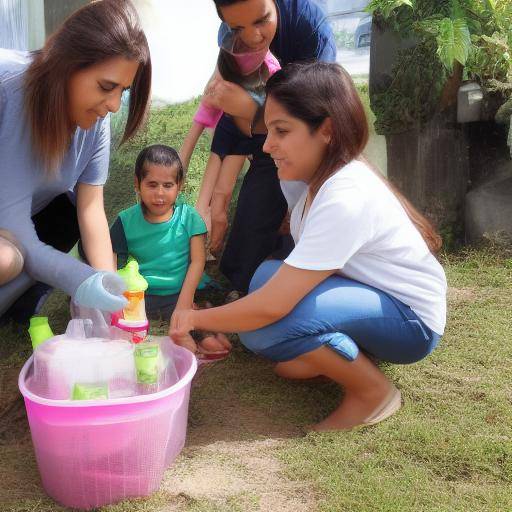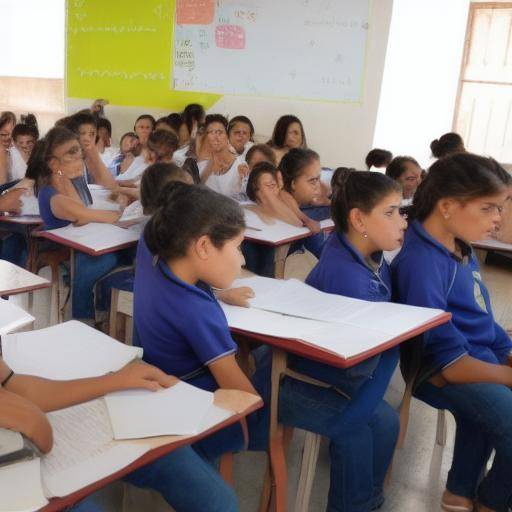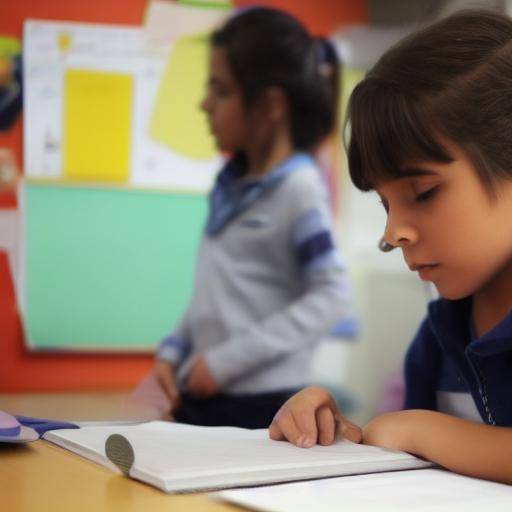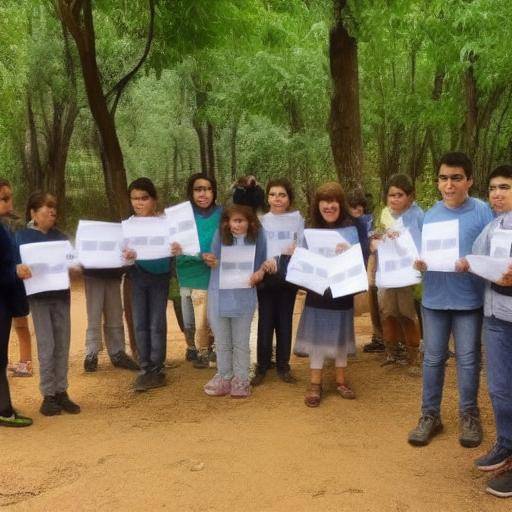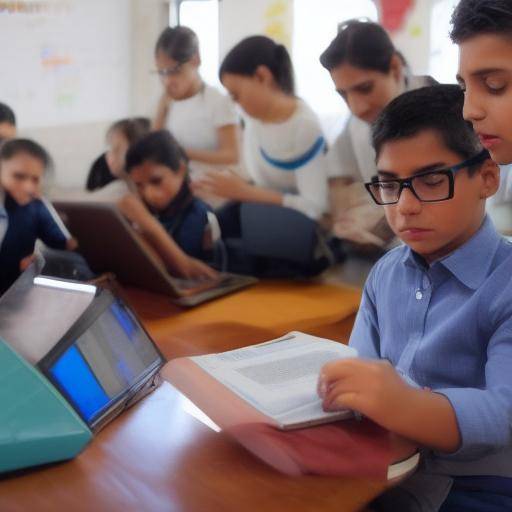
Environmental education is a key tool in addressing current environmental challenges and promoting sustainable practices. This article explores the impact of environmental education on sustainability, from its history and evolution to its practical applications, future trends and useful tips. Throughout the content, key concepts such as environmental education, impact and sustainability will be analyzed, providing a detailed view of how these elements intertwine to promote a positive impact on the environment.
Introduction
Environmental education is much more than learning about nature, ecosystems or renewable energies. It is about developing a critical awareness of environmental problems, fostering sustainable thinking and empowering people to generate significant changes. In this era of climate change and biodiversity loss, environmental education is a key pillar for promoting sustainability at the individual, community and global levels.
History and Background
Environmental education is rooted in social movements and concerns about environmental conservation. Since its first demonstrations in the 1960s, driven by growing awareness of pollution and the depletion of natural resources, to its inclusion in formal and informal educational programmes, the evolution of environmental education has witnessed significant milestones and transformations. The incorporation of environmental education into political agendas and educational programmes represents a clear recognition of its relevance to addressing environmental challenges.
Deep analysis
One of the most important impacts of environmental education is its ability to sensitize people about the importance of sustainability and to foster changes in their behaviour, attitudes and decisions. Environmental education not only conveys knowledge about the environment, but also promotes critical skills, such as analytical skills, problem solving and creative thinking, necessary to promote sustainability.
Environmental education has adapted to current trends, using technology and virtual platforms to reach wider audiences. This adaptation has enabled the development of interactive educational resources, the implementation of digital learning programmes and the creation of online communities dedicated to environmental issues. These innovations have broadened the scope of environmental education and encouraged the participation of various demographic groups in the promotion of sustainability.
Comprehensive review
In exploring the practical applications of environmental education, there is a diverse picture of approaches and strategies that demonstrate their impact on sustainability. From educational programmes in schools and universities to community initiatives, public awareness campaigns, government policies and conservation projects, environmental education is realized in a variety of contexts and forms, each contributing significantly to the promotion of sustainable practices.
The dialogue among experts in education, conservation, sustainable development and other related fields reveals the importance of integrating environmental education into broader sustainability strategies. Through multidisciplinary research, there is evidence of the positive impact of environmental education on public perception, business decision-making, policy design and ecosystem conservation, among other key aspects of sustainability.
Comparative analysis
The dynamic interaction between environmental education, impact and sustainability reveals similarities and differences that enrich the understanding of their role in building a sustainable future. While the impact of environmental education is tangible in different contexts, the connection with sustainability implies a careful assessment of how individual and collective changes influence the path to sustainable development.
The comparative approach also allows to identify areas of opportunity to strengthen synergies between environmental education, impact and sustainability, as well as to address possible challenges or constraints in the implementation of educational strategies for long-term sustainability.
Practical Tips and Accessible Recommendations
To empower readers with concrete tools, practical advice will be provided to integrate environmental education into everyday life, work and community. These recommendations, supported by anecdote evidence or data, will provide concrete actions that readers can adopt to promote sustainability in their immediate environment and beyond.
- Reduce plastic consumption by using reusable and biodegradable alternatives.
- Promoting environmental education in the working environment through the implementation of sustainability policies and staff awareness.
- Participate in community initiatives aimed at the conservation, recycling and protection of natural spaces.
Industrial Perspectives and Expert Reviews
The perspectives provided by experts in fields related to environmental education, impact and sustainability add a layer of authority and experience to content. These opinions, supported by research or case studies, provide a deep insight into emerging trends, opportunities and obstacles that influence the interaction between environmental education and sustainability today.
Case Studies and Real Life Applications
Case studies represent an invaluable tool to illustrate how environmental education translates into concrete actions and tangible results in various environments and contexts. By presenting specific examples of environmental education initiatives, their impacts and lessons learned, readers will be able to visualize more clearly how theory becomes practice, and identify possible strategies applicable to their own contexts.
Future Trends and Predictions
Exploring emerging trends and future projections related to environmental education, impact and sustainability allows readers to understand the direction to which the field is heading and anticipating relevant changes or challenges. In analyzing short- and long-term trends, supported by current data and research, the content provides a coherent view of what can be expected in terms of advances, challenges and opportunities in environmental education.
Conclusions
In short, environmental education has a significant impact on the promotion of sustainable practices and awareness of environmental protection. Taking advantage of its historic evolution, concrete applications, prospects for experts and future trends, this content has comprehensively explored the impact of environmental education on sustainability, giving readers a deep and practical understanding of the topic.
FAQs
1. What is the main objective of environmental education?
Environmental education aims at raising people ' s awareness of current environmental challenges, promoting sustainable practices and empowering individuals to make informed environmental decisions.
2. What are the main benefits of integrating environmental education in schools and universities?
The integration of environmental education in educational environments allows the promotion of environmental awareness from early ages, affecting the formation of citizens more responsible and committed to sustainability.
3. How can environmental education contribute to sustainability in working and organizational settings?
Environmental education at work can promote the implementation of sustainable business policies, sensitize employees about the impact of their actions on the environment and encourage the adoption of responsible practices.
4. What are the most relevant challenges associated with environmental education?
Among the most relevant challenges are the lack of adequate educational resources, the resistance to change in certain sectors of society, the need to adapt environmental education to local realities and the evaluation of their long-term impact.
5. Why is it important to collaborate among different actors to promote environmental education?
Collaboration among various actors, such as educational institutions, non-governmental organizations, companies and governments, is critical to generating a significant impact through environmental education, as it allows sharing knowledge, resources and experiences that enhance their effectiveness.
6. What are the main future trends in environmental education and sustainability?
There is a growing integration of environmental education in digital environments, the focus on environmental justice and the inclusion of environmental education in decision-making at the political and business levels as prominent trends that will mark the future course of environmental education and its impact on sustainability.
Conclusion
Environmental education represents a powerful agent of change, capable of transforming mentalities and promoting an active commitment to sustainability. Through its impact on public awareness, decision-making at the individual and collective levels, and the promotion of sustainable practices, environmental education is a fundamental pillar for the construction of a more equitable and environmentally friendly future. By understanding its historical relevance, practical application and future projection, readers will be better prepared to embrace change and promote sustainability through environmental education.




